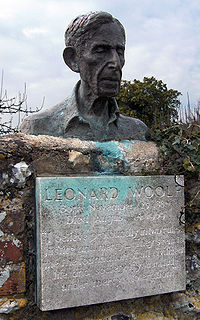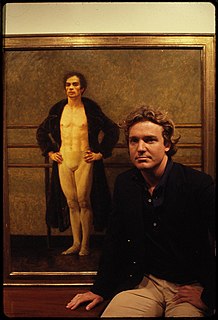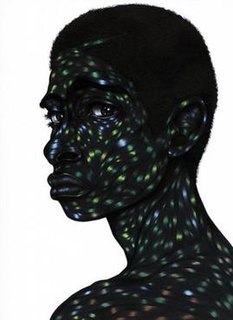A Quote by Leonard Woolf
At the best and even unexpurgated, diaries give a distorted or one-sided portrait of the writer.
Related Quotes
I've always felt the portrait is an occasion for marks to happen. I've never viewed the portrait as about the sitter. Even when I go to the National Portrait Gallery, I'm not thinking about the sitter; I'm thinking about how the artist chose that color or that highlight. It becomes about the time, place, and context.
A handwritten letter carries a lot of risk. It's a one-sided conversation that reveals the truth of the writer. Furthermore, the writer is not there to see the reaction of the person he writes to, so there's a great unknown to the process that requires a leap of faith. The writer has to choose the right words to express his sentences, and then, once he has sealed the envelope, he has to place those thoughts in the hands of someone else, trusting that the feelings will be delivered, and that the recipient will understand the writer's intent. How childish to think that could be easy.
Sometimes small incidents, rather than glorious exploits, give us the best evidence of character. So, as portrait painters are more exact in doing the face, where the character is revealed, than the rest of the body, I must be allowed to give my more particular attention to the marks of the souls of men.
The best advice that an accomplished writer could give a beginning writer is probably, "Find your slide and then grease it." Almost every writer that wants a rewarding career, in terms of money and status and number of readers, finally finds a certain genre or certain style that he or she sticks with until reaching a critical mass of readership. And I've violated this from the get-go.
I think the most useful thing you can do as a writer is to reconstruct real life with all its color, hardship, joy, and intrigue. If you're interested in people, you honor them best, I think, by making the fullest possible picture of them. Your subjects may - and from my experience probably will - protest your portrait of them.



































